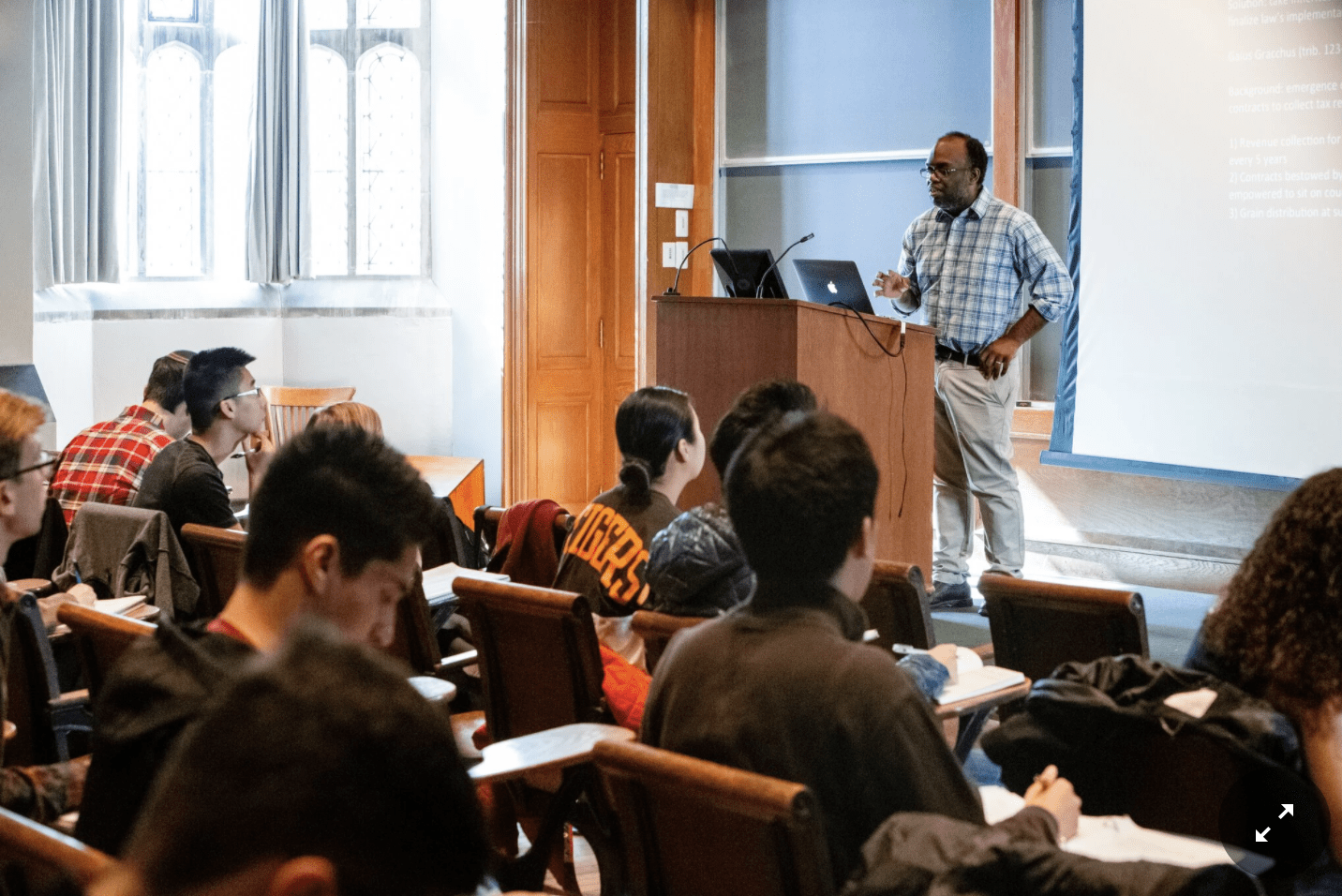Photo: Dan-el Padilla Peralta teaching Roman history at Princeton in 2016
Classics Must Be Anti-Racist: The Classics Studies Department’s Anti-Racism Working Group at Penn
By Cecelia Heintzelman
Classics is at breaking point, one where it must decide to be actively anti-racist.
Our seemingly small field exploded into public controversy after the recent publishing of the New York Times’s article about Princeton professor Dan-el Padilla Peralta. The NYT article, “He Wants To Save Classics From Whiteness. Can the Field Survive?” begged the question: if we attempt to make Classics an anti-racist field, will it remain Classics as we know it?
The criticism brought to light many anxieties about the past, present, and future of the field of Classics.
There is still significant work that needs to be done to address the historical complicity which the discipline of Classics has had, and sometimes continues to have, in social constructions of whiteness. From Tacitus’ Germania informing Heinrich Himmler’s understanding of German racial purity to the explosive panel (a reaction to the event linked here) at the 2019 Society for Classical Studies meeting, Classics’ contribution to the white identity continues to be felt, even if we, as a society, have seemingly made progress. With Classics in the limelight, it is time for the discipline to decide to be anti-racist.
This year, the Classical Studies Department of the University of Pennsylvania founded its Anti-Racism Working Group to address issues of equity, diversity, and inclusion in our department. The group is comprised of five sub-groups, each addressing an aspect of the goal.
The five subgroups are as follows: Surveys, Outreach, First Fridays, Curriculum, and Department Shape and Name.
The first subgroup, Surveys, seeks to create methods of gathering data on diversity and inclusion in classrooms and in university spaces.
The Outreach committee has worked to increase communication among undergraduate students, graduate students, and faculty, as well as looking outward into the wider West Philadelphia community, seeking to expand access to Classics to local schools.
The First Friday committee is in charge of the First Friday events in the department, which happen every month. This year, they have looked to center conversations around race, racism, and anti-racist initatives in the department and university.
The Curriculum sub-group has been looking closely at the courses offered by the Classics department, attempting to make courses and course descriptions more accessible, as well as talking about the required classes which majors take and what those requirements fulfill.
Lastly, the Department sub-group has been investigating criticism of the name ‘Classical Studies Department’. The group has considered whether changing the name to another title, such as ‘Ancient Mediterranean Studies’ is useful.
The Classical Studies Department at Penn is taking a very necessary, and long overdue, step towards more diversity and inclusion within the department and the university. It is time Classics takes a stance on racism; it is time Classics becomes anti-racist. This is the first step.
Cecelia Heintzelman (College ’22) is a student at the University of Pennsylvania studying Ancient History and History of Art, with a minor in Global Medieval Studies.
Comments? Join the conversation on our Twitter, Facebook, and LinkedIn!
